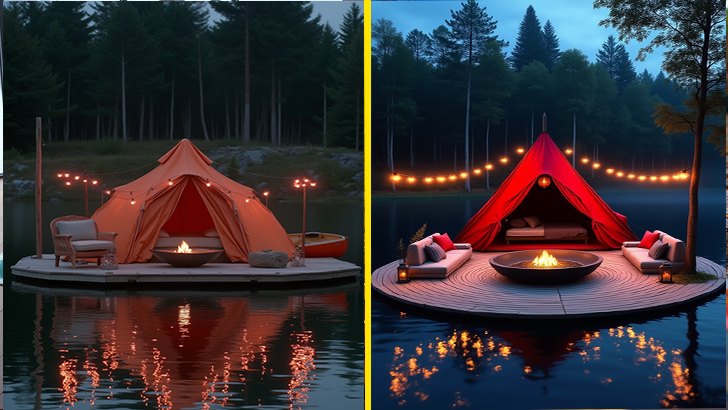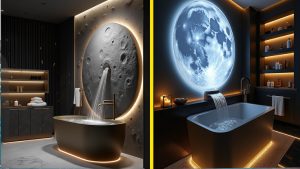Camping has long been a cherished activity for nature enthusiasts seeking solace and adventure in the great outdoors. As recreational pursuits evolve, so do the innovative ways we immerse ourselves in nature. One such groundbreaking concept is the floating campsite—a unique blend of traditional camping and aquatic tranquility. This article delves into the world of floating campsites, exploring their design, benefits, and the unparalleled experiences they offer.
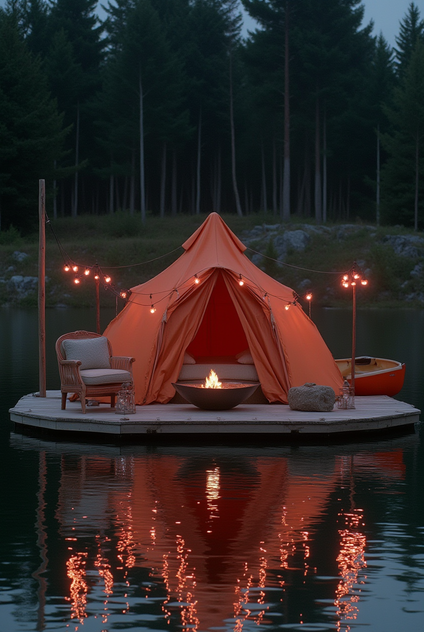
What Are Floating Campsites?
Floating campsites are exactly what they sound like: campsites that float atop bodies of water. Imagine a sturdy, circular wooden platform anchored securely on a lake or river, providing a stable base for camping activities. This concept transforms the conventional camping paradigm by placing campers directly on the water, offering a serene and immersive natural experience.
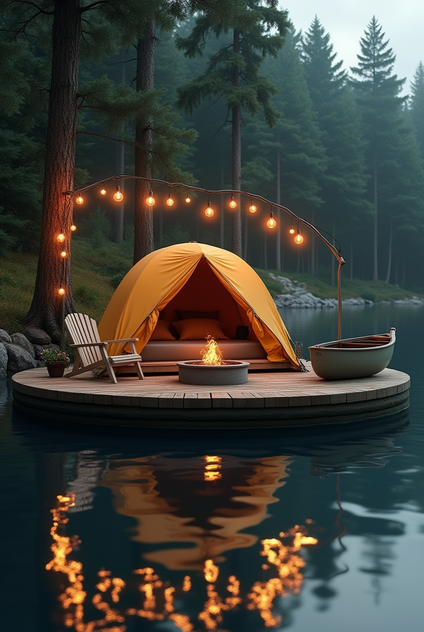
Design and Structure
Typically constructed from robust materials like cedar or pine, these platforms are designed to withstand aquatic environments. They come in various sizes to accommodate different group sizes:
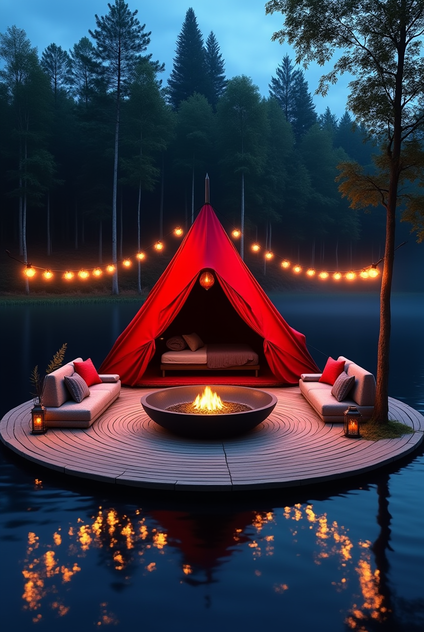
-
10-foot diameter platforms: Ideal for intimate escapes or solo adventurers.
-
14-foot platforms: Suitable for small groups or families.
-
19-foot platforms: Perfect for larger gatherings or social events.
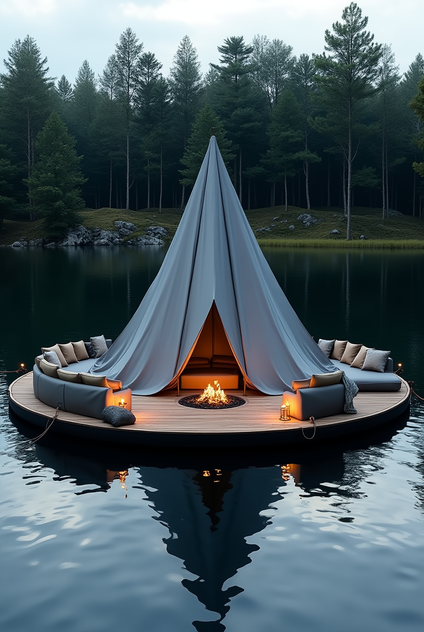
Each platform is thoughtfully equipped with essential amenities:
-
Tents: High-quality, waterproof tents are securely anchored to the platform, ensuring comfort and protection from the elements.
-
Fire Pits: Built-in fire pits allow for cooking and warmth, enhancing the traditional camping experience.
-
Seating Areas: Comfortable seating arrangements provide spaces for relaxation and socialization.
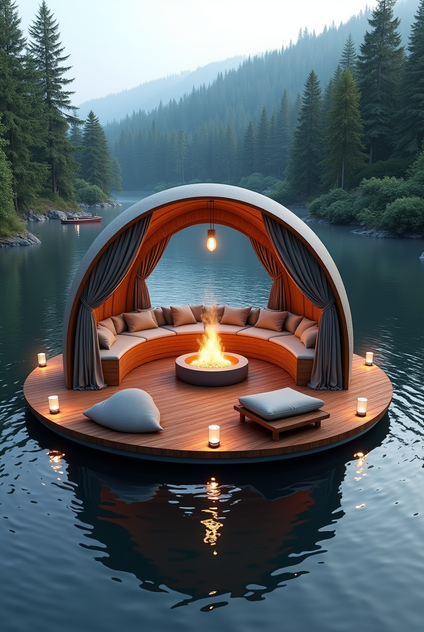
Accessing Floating Campsites
Reaching these aquatic retreats adds an element of adventure to the experience. Campers typically use canoes or kayaks to paddle out to their designated platforms. Upon arrival, vessels can be securely tied to the platform’s edges, ensuring they remain in place throughout the stay. The platforms are anchored to prevent drifting, providing stability and peace of mind.
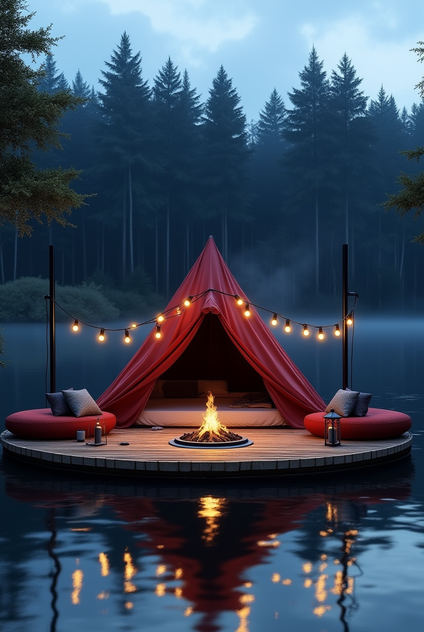
Amenities and Comforts
Despite their unconventional setting, floating campsites do not compromise on comfort:
-
Tent Accommodations: Spacious and weather-resistant tents offer a cozy shelter, allowing campers to sleep under the stars with the gentle lull of water beneath them.
-
Fire Pits and Cooking Facilities: Integrated fire pits enable traditional campfire cooking, from roasting marshmallows to preparing full meals.
-
Seating and Relaxation Spaces: Thoughtfully arranged seating areas invite campers to unwind, read, or simply enjoy the surrounding scenery.
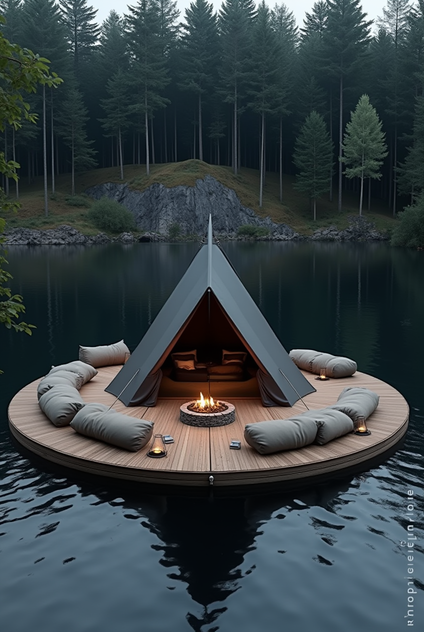
Activities on Floating Campsites
The unique location of floating campsites opens up a plethora of recreational opportunities:
-
Fishing: Enthusiasts can cast their lines directly from the platform, enjoying the convenience of fishing at any time.
-
Swimming and Water-Based Recreation: Easy access to the water encourages swimming, snorkeling, or simply floating nearby.
-
Stargazing and Nature Observation: The unobstructed surroundings provide excellent conditions for stargazing and observing local wildlife.
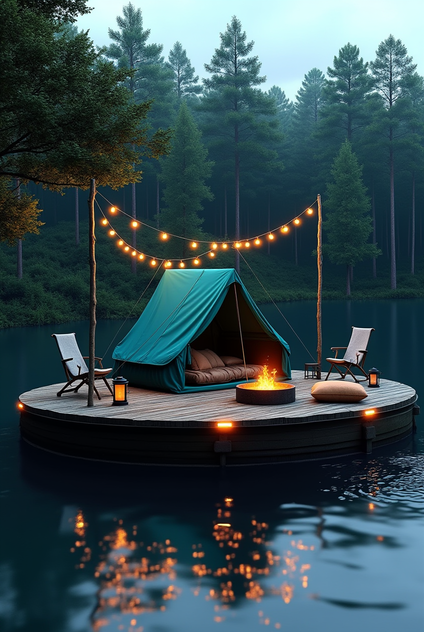
Safety Measures
Safety is paramount in any camping scenario, and floating campsites are no exception:
-
Life Jacket Requirements: Campers are advised to wear life jackets when accessing the platforms and during water-based activities.
-
Fire Safety Protocols: Proper guidelines are in place to manage open flames, ensuring safe use of fire pits.
-
Weather Considerations: Monitoring weather conditions is crucial, with contingency plans for sudden changes to ensure camper safety.
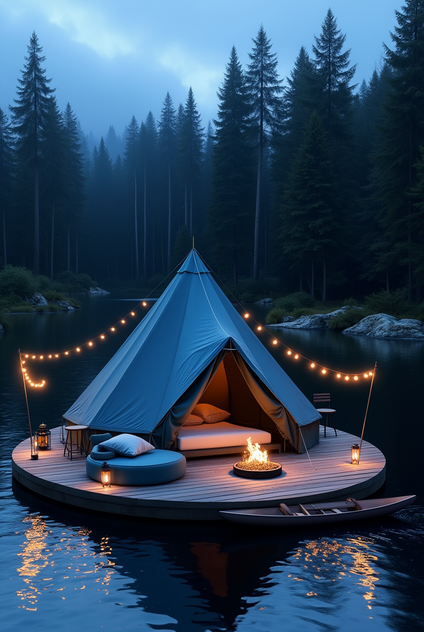
Environmental Impact
Floating campsites are designed with environmental sustainability in mind:
-
Eco-Friendly Materials and Practices: The use of sustainable materials and minimalistic designs reduces ecological footprints.
-
Impact on Aquatic Ecosystems: Platforms are anchored in a manner that minimizes disruption to aquatic habitats.
-
Leave-No-Trace Principles: Campers are encouraged to adhere to principles that preserve the natural environment, ensuring no lasting impact.
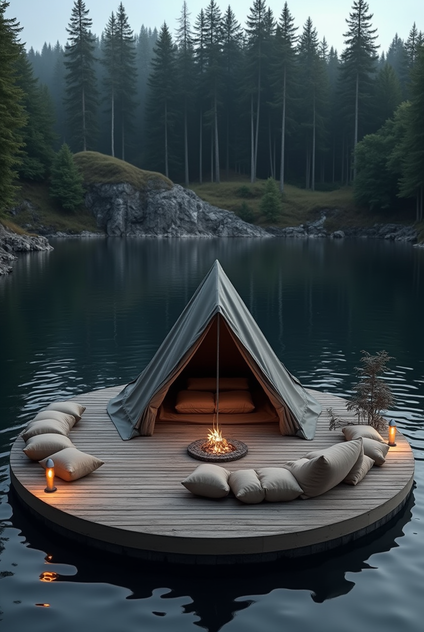
Popular Destinations for Floating Campsites
Several locations have embraced the floating campsite concept:
-
Float Troy in Ohio, USA: Offers a unique public floating tent experience on the Great Miami River, providing a novel way to enjoy the waterway.
-
Floating Safari Camp in Sweden: Nestled just south of the Arctic Circle, this camp offers secluded floating accommodations amidst stunning natural beauty.
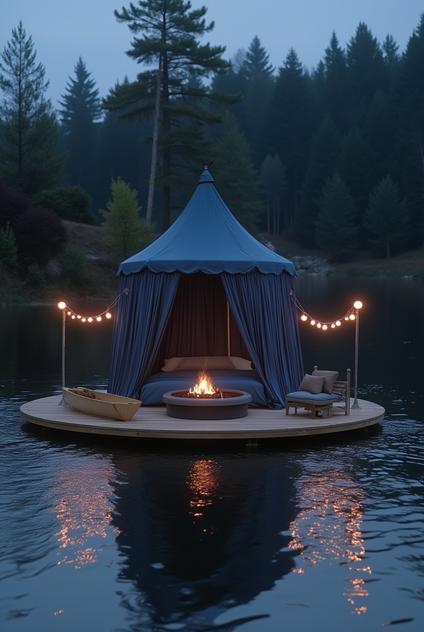
Customization and Personalization
For those seeking a personalized experience, some providers offer DIY floating campsite platforms. Campers can bring their own tents and equipment, tailoring the setup to their preferences. This flexibility allows for creative expressions and unique camping experiences.
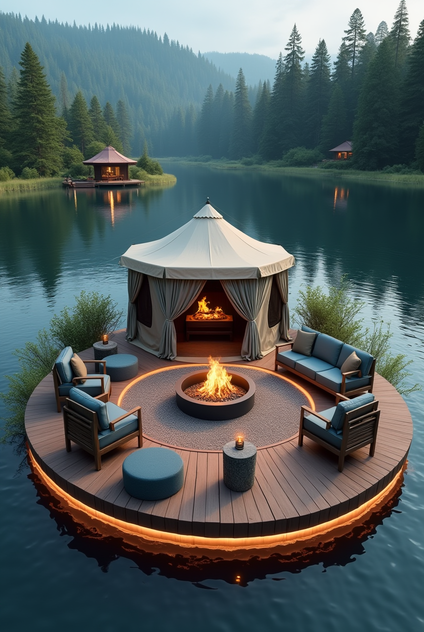
Booking and Reservations
As floating campsites gain popularity, booking in advance is recommended. Potential campers should research available locations, check seasonal availability, and understand pricing structures to plan their adventure effectively.
Pros and Cons of Floating Campsites
Pros:
-
Unique Experience: Offers a novel and immersive way to connect with nature.
-
Privacy: The isolated nature of the platforms provides a sense of seclusion.
-
Direct Water Access: Enhances recreational opportunities like fishing and swimming.
Cons:
- Accessibility: Reaching the platforms requires paddling
